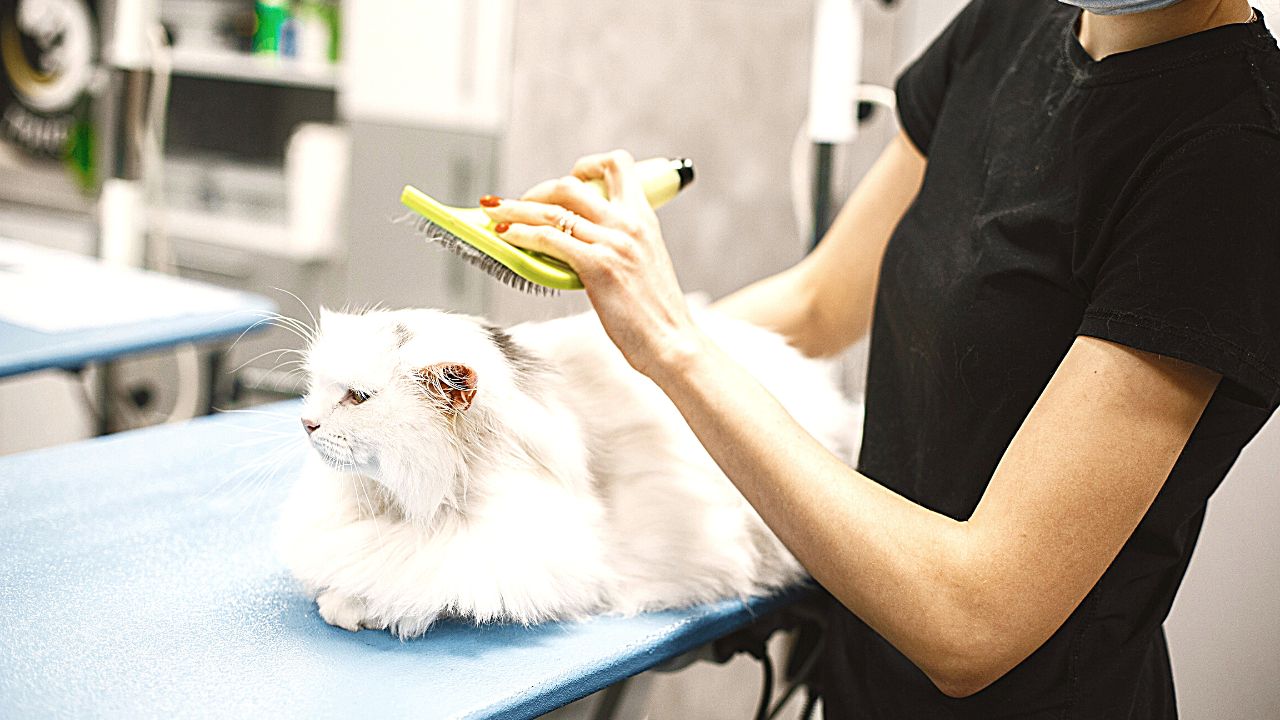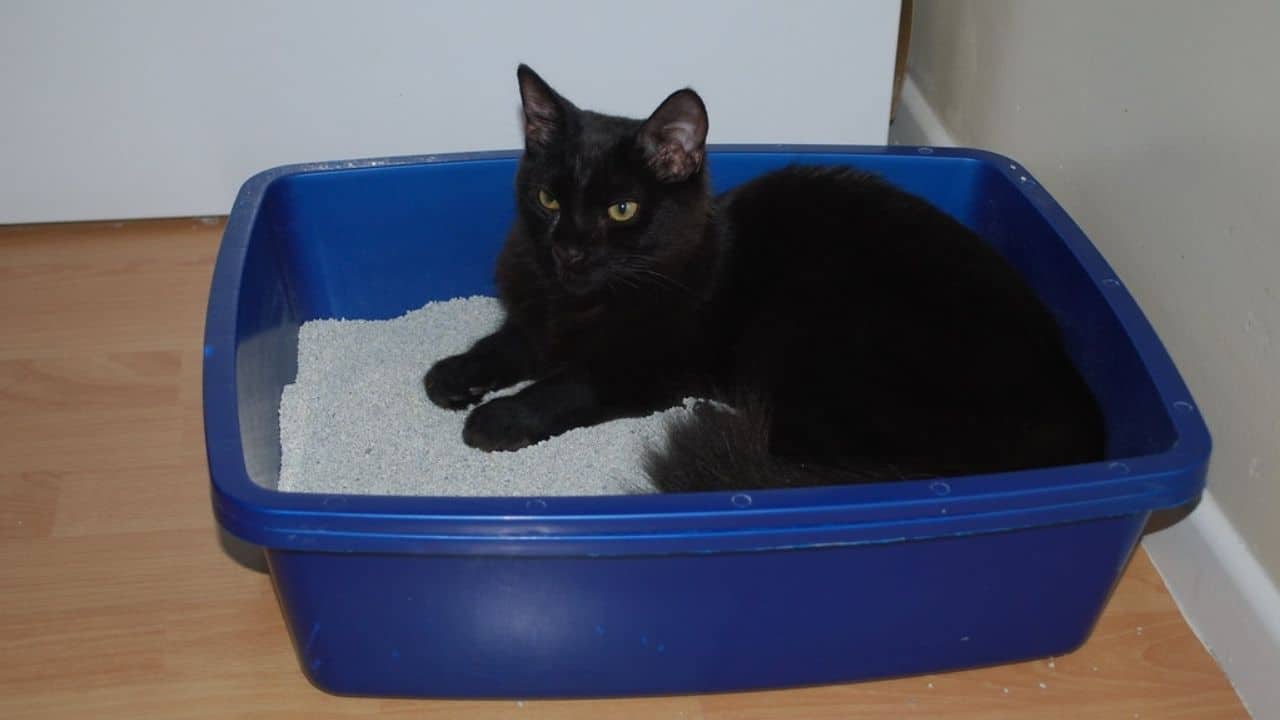
Table of Contents
Deworming is required for cats to prevent and treat intestinal parasites, often known as worms, that may impact their health. Roundworms and tapeworms are the most typical worm species seen in cats.
Types of worms found in cats
Roundworms
The most common intestinal parasites that infect cats are roundworms. There are two types: Toxascaris leonina and Toxocara cati. Through their excrement, infected cats discharge eggs into the environment. These eggs can live for up to 5 years and become contagious after two to three weeks. Extreme heat and disinfectants won’t harm them.
Cats can contract roundworms via sniffing, licking, or hunting rodents with minute worm larvae in their droppings. The larvae might go to other organs in pregnant cats and go dormant. The larvae reactivate after giving birth, move to the mammary glands, and infect the kittens through their mother’s milk.
Tapeworm
Tapeworms, sometimes known as flatworms, are named for their segmented, flat, and white bodies. They can cling to the cat’s intestinal wall thanks to hooks or suction cups on their heads. Cats excrete a lot of tapeworm eggs in their waste. Sometimes, a cat’s excrement will have little white, seed-like objects. Dipylidium caninum and Taenia taeniaeformis are the two most typical forms of tapeworms in cats.
Dipylidium caninum
Lice or fleas can spread this infection to dogs. Cats can consume fleas that have
these tapeworm larvae on them when they brush themselves. In the cat’s intestine, the larvae then grow into adult worms. The small intestine is where tapeworms typically take up residence.
Taenia taeniaeformis
Cats who seek and consume the meat of small rodents like mice, rats, or squirrels
are susceptible to this tapeworm. These rodents have tapeworm larvae, which can then infect the cat when it consumes the prey.
Methods of Cat Deworming
There are several deworming techniques for cats; therefore, it’s crucial to heed a veterinarian’s advice. Typical approaches include;
Oral Medication
Tablets, pills, or liquids are frequently used to administer deworming drugs orally. These drugs are intended to eliminate the worms in the cat’s intestines. For the drug to succeed, it must be administered exactly as the veterinarian prescribes.
Spot-On Treatments
Spot-on treatments are topically applied drugs between the cat’s shoulder blades. These medications help manage many kinds of worms, including certain tapeworms, fleas and ticks.
Injectable Medication
In some situations, veterinarians may deliver deworming drugs through injection. This strategy is usually reserved for severe infestations or when oral drugs are not an option.
Regular Prevention
Veterinarians prescribe preventive deworming to keep cats safe from future worm infestations. Both roundworms and tapeworms can be controlled and prevented with regular use of preventive medications.
Deworming for cats: important notes
- Kittens: Deworming medication should be administered to kittens between 6 and 16 weeks. This is usually done twice a year, although it varies depending on their living situation and whether they live with other cats.
- First Dose: A deworming treatment targeting roundworms should be utilized for the initial dosages. This aids in the removal of any existing roundworm infections in kittens.
- Adult Cats: Once cats reach adulthood, they should be treated for both roundworms and tapeworms. This provides complete protection against intestinal parasites.
- Second Dose: Two weeks after the first deworming treatment, a second dose should be administered to eradicate any parasites that may still be present. This is so that any larvae left over from the initial treatment can grow into adult worms in under two weeks.
- Hygiene and flea treatment: Maintaining cleanliness is essential to stop an infestation from returning. Clean your cat’s living space and litter box regularly. Additionally, periodically flea-treat your cat because fleas can spread some worms.
Pros and cons of Cat Deworming
Pros
- Worm infestations can cause weight loss, diarrhoea, vomiting, and other digestive problems. Regular deworming keeps cats healthy.
- Some parasites prevalent in cats, such as roundworms, can be passed to humans, particularly children. Deworming cats minimize the risk of zoonotic illnesses and provide a safe environment for the entire family.
- Deworming drugs can provide additional benefits, such as managing fleas and ticks. This helps protect cats from external parasites, which can transmit diseases and cause discomfort.
- Deworming minimizes the quantity of parasite eggs excreted in the cat’s faeces, reducing environmental contamination. This is especially crucial in multi-cat households or locations with high cat populations.
Cons
- Some cats may develop moderate adverse effects with deworming drugs, such as vomiting, diarrhoea, or temporary loss of appetite. However, these adverse effects are usually rare and transitory.
- Excessive or incorrect usage of deworming drugs might contribute to developing drug-resistant parasites. It is critical to adhere to your veterinarian’s prescribed dosage and frequency to avoid resistance difficulties.
Best Practices of Cat Deworming
Veterinarian Advice
Speak with your vet to create a customised deworming strategy for
your cat’s requirements. They will consider variables including age, health status, living
circumstances, and potential exposure dangers.
Regular regimen
Adhere to the routine deworming regimen that your veterinarian has advised.
This guarantees consistent parasite control and guards against re-infestation.
Utilize Medicines That Work
Make use of deworming drugs that work against the particular parasites that are plaguing your cat. Your veterinarian will recommend the proper medication.
Dosage
Administer the deworming medication as directed. It is critical to administer the
optimum dose of medication to ensure effectiveness while minimizing the chance of negative effects.
Hygiene Maintenance
Maintain good hygiene by regularly cleaning your cat’s litter box and disposing of excrement promptly. This helps to limit the spread of parasites and minimizes the risk of environmental pollution.
Flea Control
Implement flea control measures as advised by your veterinarian. Treatment and
prevention of flea infestations in cats are critical in lowering the risk of tapeworm infection.
Conclusion
In conclusion, prevention is always preferable to treatment regarding cat deworming. Regular deworming is essential to proper cat ownership since it keeps our feline friends healthy, content, and free of bothersome parasites. We may successfully combat the possible problems brought on by intestinal worms if we remain proactive and adhere to best practices, such as visiting a veterinarian, maintaining a regular deworming
plan, and employ efficient drugs.
Keeping in mind that the early bird gets the worm, proactive deworming ensures that any potential health problems are caught early on. So, let’s get in, take charge, and guarantee that our cats live worm-free lives, giving them the perfect start to a full and happy life.
Why is cat deworming necessary?
Deworming is important for cats because it prevents and treats intestinal parasites like roundworms and tapeworms, which can harm their health. It lowers the risk of health problems, protects human health, controls fleas and ticks, and protects the environment.
How often should kittens be dewormed?
Kittens should be dewormed between the ages of 6 and 16 weeks. Deworming is normally done twice a year, although this may vary depending on their living conditions and whether they live with other cats.







